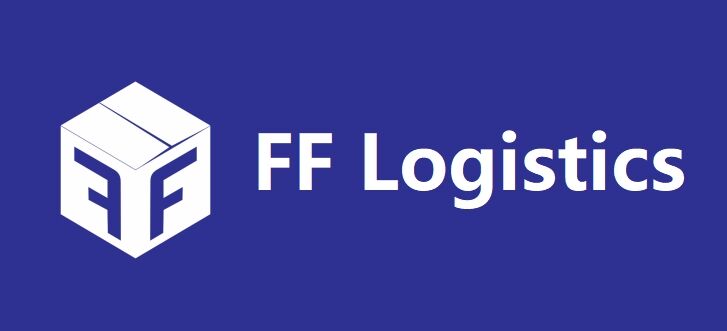Outsourcing logistics involves delegating tasks like warehousing, Shipping, and inventory management to third-party providers. For ecommerce sellers, this strategy can streamline operations and improve efficiency. You must evaluate your business needs carefully before making this decision. Choosing the right time to outsource ensures you optimize resources and focus on growing your business.
Key Indicators That Ecommerce Sellers Should Outsource Logistics
Difficulty meeting order fulfillment demands
When your order volume increases, managing fulfillment can become overwhelming. Late shipments or missed orders can damage your reputation. If you find it hard to keep up with customer demand, outsourcing logistics can help. A 3PL provider has the resources to handle high volumes efficiently. They ensure your customers receive their orders on time, even during peak seasons.
Rising operational costs and inefficiencies
As your business grows, operational costs like warehousing, labor, and shipping can skyrocket. Managing these expenses in-house often leads to inefficiencies. Outsourcing logistics can reduce costs by leveraging the expertise and economies of scale that 3PL providers offer. They streamline processes, helping you save money and improve overall efficiency.
Lack of time to focus on business growth
Spending too much time on logistics can prevent you from focusing on other areas of your business. Tasks like marketing, product development, and customer engagement are essential for growth. By outsourcing logistics, you free up time to concentrate on these priorities. This shift allows you to drive your business forward.
Expanding into new markets or scaling operations
Entering new markets or scaling your business requires a robust logistics strategy. Managing this expansion in-house can be challenging. A 3PL provider offers the infrastructure and expertise to support your growth. They handle the complexities of shipping, customs, and inventory management, making it easier for you to scale.
Frequent customer complaints About shipping issues
Negative feedback about delayed deliveries or damaged products can hurt your brand. If you notice an increase in shipping-related complaints, it may be time to outsource. 3PL providers specialize in ensuring accurate and timely deliveries. Their expertise can improve your shipping performance and enhance customer satisfaction.
Challenges with inventory management and theft
Keeping track of inventory can be difficult, especially as your product range grows. Issues like stockouts, overstocking, or theft can disrupt your operations. A 3PL provider uses advanced inventory management systems to monitor stock levels and reduce losses. Their secure facilities also minimize the risk of theft, giving you peace of mind.
When Outsourcing Logistics May Not Be Ideal for Ecommerce Sellers
Small-scale operations with manageable logistics
If your ecommerce business is still small, outsourcing logistics may not be the best choice. Handling logistics in-house can be more cost-effective when order volumes are low. You may find it easier to manage inventory, pack orders, and ship products yourself or with a small team. This approach allows you to save money and maintain control over your operations. As your business grows, you can revisit the idea of outsourcing when the workload becomes unmanageable.
Need for tight control over branding and customer experience
Some ecommerce sellers prioritize maintaining full control over their branding and customer experience. If you want to oversee every detail of packaging, shipping, and customer interactions, outsourcing may not align with your goals. A 3PL provider might not offer the level of customization you need for your brand. For example, if you use unique packaging or include personalized notes, managing logistics in-house ensures consistency and quality.
Budget constraints or lack of readiness for 3PL costs
Outsourcing logistics requires a financial investment. If your budget is tight, partnering with a 3PL provider may strain your resources. Many 3PLs charge fees for storage, order fulfillment, and shipping, which can add up quickly. Before outsourcing, evaluate your financial readiness. If the costs outweigh the benefits for your business, it might be better to wait until you have the resources to support this transition.
Steps for Ecommerce Sellers to Transition to Outsourcing Logistics
Evaluate and select the right 3PL provider
Start by researching potential 3PL providers. Look for companies that specialize in your industry or product type. Evaluate their reputation by reading reviews and asking for references. Compare their services, Pricing, and technology. Check if they offer features like real-time tracking or integration with your ecommerce platform. Request a detailed proposal to understand their capabilities. Choose a provider that aligns with your business goals and can scale with your growth.
Prepare your business for the transition
Organize your operations before handing them over to a 3PL. Audit your inventory to ensure accurate stock levels. Update your product catalog with correct dimensions, weights, and descriptions. Share your sales data and order history with the 3PL to help them plan effectively. Create a clear timeline for the transition. Inform your team about the changes and train them on any new processes.
Establish clear communication with your 3PL partner
Set expectations early by discussing your goals and priorities. Define key performance indicators (KPIs) like order accuracy, delivery times, and customer satisfaction. Schedule regular check-ins to review performance and address concerns. Use communication tools like shared dashboards or project management software to stay updated. Strong communication ensures a successful partnership.
Monitor and optimize the partnership over time
Track the 3PL’s performance using the agreed-upon KPIs. Analyze metrics like shipping times, error rates, and customer feedback. Share this data with your 3PL to identify areas for improvement. Stay proactive by suggesting adjustments to processes or exploring new services they offer. Regularly review the partnership to ensure it continues to meet your business needs.
Recognizing when to outsource logistics can transform your business. Signs like rising costs, fulfillment challenges, or scaling plans indicate it’s time to consider a 3PL provider. Weigh the benefits and drawbacks carefully. Evaluate your operations and identify gaps. By taking proactive steps, ecommerce sellers can streamline logistics and focus on growth opportunities.



